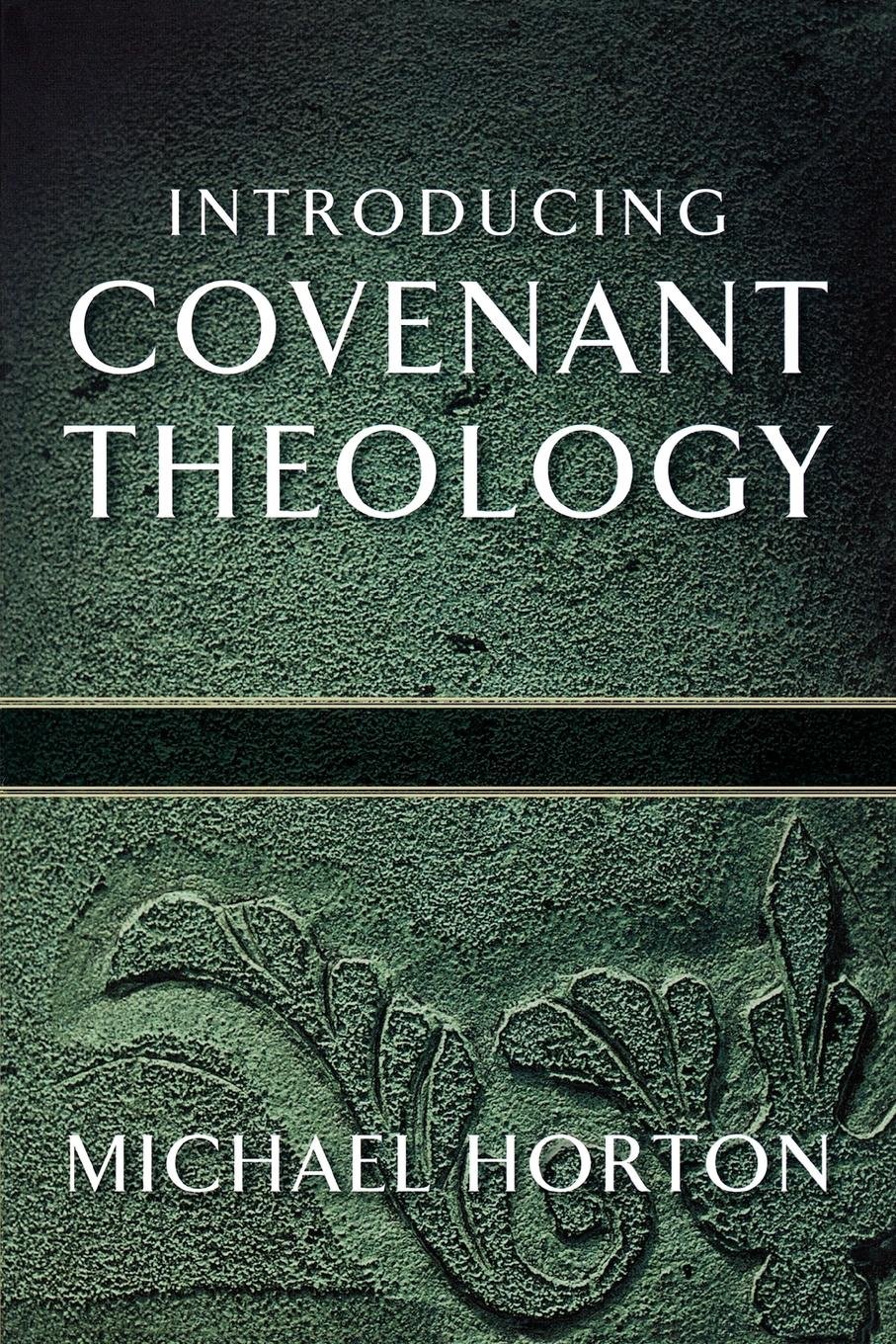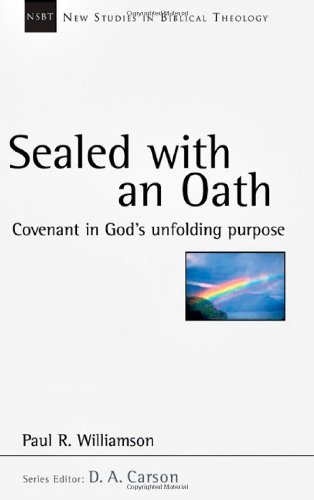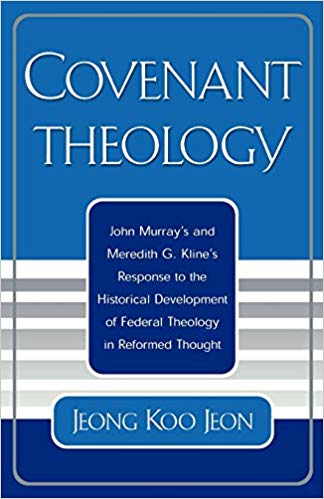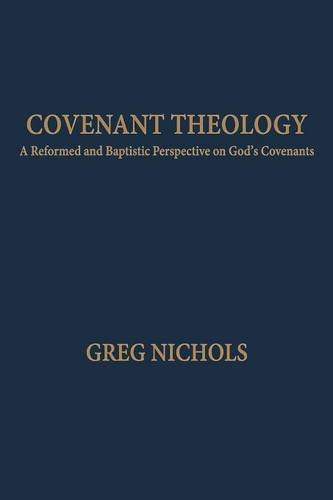Because the healing of the sicknesses of the conscience cometh by a right application of divine Covenants about our salvation: therefore it is necessary, that some measure of the knowledge thereof be opened up.
1. A divine covenant we call, a contract or paction, wherein God is at least the one party contracter. Of this sort of covenants about the eternal salvation of men (which sort chiefly belong to our purpose) there are three. The first is, the covenant of redemption, past {23} between God, and Christ God appointed Mediatour, before the world was, in the council of the Trinity. The second is, the covenant of works, made between God and men, in Adam in his integrity, endued with all natural perfections, enabling him to keep it, so long as it pleased him to stand to the condition. The third is, the covenant of grace and reconciliation through Christ, made between God and believers (with their children) in Christ.
2. As to the covenant of redemption; for clearing the matter, we must distinguish the sundry acceptions of the word redemption: for, (1.) Sometime it is taken for the contract and agreement of selling and buying-back to eternal salvation, of lost man, looked upon as in the state of sin and misery. In which sense, we are said to be bought by Christ, both souls and bodies, 1 Cor. 6.19,20, Ye are not your own; for ye are bought with a price: therefore glorify God in your body, and in your spirit, which are God’s. And this may be called redemption by paction and agreed bargain. (2.) Sometimes redemption is taken for the paying of the price agreed upon. In which sense, Christ is said to have redeemed us, by suffering of the punishment due to us, and ransoming of us, Gal 3.13, Christ hath redeemed us from the curse of the law, being made a curse for us. (3.) Sometime redemption is taken for the begun application of the benefits purchased in the covenant by the price paid, Eph. 1.7, In whom we have redemption through His blood, even the remission of sins, according to the riches of His grace. (4.) Sometime redemption is taken for the perfect and full possession of all the benefits agreed upon between the Father and Christ His Son the Mediator. In which sense, we are said to be sealed with the holy Spirit of promise, which is the earnest of our inheritance, until the redemption of the purchased possession, Ephes. 1.14. and Ephes. 4.30, it is said, Grieve not the holy Spirit of God, whereby ye are sealed unto the day of redemption; which is the day of Judgment, when Christ shall put us in full possession of all the blessedness {24} which He purchased by bargain and payment for us.
In this place we take redemption in the first sense, for the covenant past between the Father and Christ His Son, designed Mediatour, about our redemption.
3. When we name the Father as the one party and His Son Christ as the other party in this covenant, we do not seclude the Son and holy Spirit from being the party offended; but do look upon the Father, Son, and Spirit, one God in three Persons, as offended by man’s sin; and yet all three contented to take satisfaction to divine justice for man’s sin in the Person of the Son, as designed Mediatour, to be incarnate. Whereby the Son is both the party offended as God, one essentially with the Father and holy Spirit; and the party contracter also, as God designed Mediatour personally for redeeming man, who with consent of the Father and holy Spirit, from all eternity willed and purposed in the fullness of time, to assume the human nature in personal union with Himself, and for the elect’s sake to become man, and to take the cause of the elect in hand, to bring them back to the friendship of God, and full enjoyment of felicity for evermore.
When therefore we make the Father the one party, and the Son designed mediatour the other party, speaking with the Scripture, for the more easy uptaking of the Covenant, let us look to one God in three Persons, having absolute right and sovereign power according to His own pleasure to dispose of men, looked upon as lying before God (to Whom all things are present) in sin and death, drawn on by man’s own deserving, and yet for the glory of his grace resolving to save the elect, so as His justice shall be satisfied for them, in and by the second Person of the Trinity, the co-eternal and co-essential Son of the Father.
4. This covenant of redemption then may be thus described. It is a bargain, agreed upon between the Father and the Son designed Mediatour, concerning the elect (lying {25} with the rest of mankind in the state of sin and death, procured by their own merit) wisely and powerfully to be converted, sanctified and saved, for the Son of God’s satisfaction and obedience (in our nature to be assumed by Him) to be given in due time to the Father, even unto the death of the cross.
In this bargain or agreement, the Scripture importeth clearly, a selling and a buying of the elect, Acts 20.28, Feed the Church of God, which He hath purchased by His own blood, 1 Cor. 6.20, ye are bought with a price, and 1 Pet. 1.18. The seller of the elect, is God; the buyer, is God incarnate; the persons bought, are the Church of the elect; the price, is the blood of God, to wit, the blood of Christ, who is God and man in one person.
This covenant of redemption, is in effect one with the eternal decree of redemption, wherein the salvation of the elect, and the way how it shall be brought about is fixed, in the purpose of God, who worketh all things according to the counsel of His own Will, as the Apostle sets it down, Eph. 1, unto the 15th verse.
And the decree of redemption is in effect a covenant, one God in three persons agreeing in the decree, that the second Person, God the Son, should be incarnate, and give obedience and satisfaction to divine justice for the elect: unto which piece of service the Son willingly submitting Himself, the decree becometh a real covenant indeed.
But for further satisfaction, that there is such a covenant between the Father and the Son, as we have said, for redeeming of the elect, Scripture giveth us evidence six ways.
The first way is by expressions, which import & presuppose a formal covenant between the parties, buying and selling; the second way is, by styles and titles given to Christ the Redeemer; the third is, by expressions relating to an eternal decree for execution and performance of the covenant of redemption; the fourth is, by representation of this covenant in the Levitical types; the fifth is, by Christ the Redeemer now incarnate, His {26} ratification of the covenant; and the sixth way is, by holding forth to us the heads and articles agreed upon, wherein the covenant consists.
The first proof
AS to the expressions, importing a formal covenant, first, Eph. 1.7, it is called a redemption, or a buying of the elect out of sin and misery by blood, shewing that no remission of sin could be granted by Justice, without shedding of blood, and Christ undertook to pay the price, and hath paid it.
Again, the inheritance which the elect have promised unto them, is called a purchase, importing, that the disponer of the inheritance to the elect, must have a sufficient price for it, and that the Redeemer hath accepted the condition and laid down the price craved for it. Ephes. 1.14, and so brought back lost heaven and forfeited blessedness to so many sinners, who otherwise for sin, might justly have been excluded and debarred therefrom forever.
A third expression is holden forth, Acts 20.28, wherein God disponer and God Redeemer, are agreed, that the elect shall go free for God the Redeemer’s obedience unto the death, who hath now bought them with His blood.
A fourth expression is in plain terms set down by Paul, 1 Cor. 6.20, Ye are bought with a price: God the disponer selleth, and God the Redeemer buyeth the elect to be His conquest, both body and spirit. And Peter more particularly expresseth the price of redemption agreed upon, to be not gold or silver, but the blood of the Mediatour Christ, the innocent Lamb of God, slain in typical prefigurations from the beginning of the World, and slain in real performance in the fullness of time, 1 Pet. 1.18-21.
A fifth expression is, that of our Lord Jesus in the institution of the Sacrament of His Supper, Matt. 26.28, This is my blood of the new Testament, which is shed for many, for remission of sins. Here an agreement between {27} the Redeemer and God disponer, that these many which are the elect, shall have remission of sins for the Redeemer’s ransom of blood paid for them. The purchase of this ransom of blood, He maketh over in the Covenant of grace and reconciliation to believers in Him, and sealeth the bargain with them by the Sacrament of His Supper.
The second proof
THE second evidence of this Covenant of Redemption past between God and God the Son Mediatour designed, is from such titles and styles as are given to Christ in relation to the procuring of a Covenant of grace and reconciliation between God and us. First, He is called a Mediatour of the Covenant of reconciliation, interceding for procuring of it, and that not by a simple entreaty, but by giving Himself over to the Father (calling for satisfaction to justice, that reconciliation might go on) for paying a compensatory price, sufficient to satisfy Justice for the elect, 1 Tim. 2.5,6, There is one God and one Mediatour between God and man (to wit, God incarnate) the man Christ Jesus who gave Himself a ransom for all (to wit, elect children) to be testified in due time.
Another title is given to Him by Job, Chap. 19.24, Where He is called a Redeemer, a near kinsman, who before His incarnation had obliged Himself to take on human nature, and to pay the price of Redemption (represented by slain sacrifices) for the elect His kinsmen.
A third title is held out, in that He is called a Surety of a better Covenant, Heb. 7.22. Whereby is imported, that God would not pass a Covenant of grace and reconciliation to men, except He had a good Surety who would answer for the debt of the party reconciled, and would undertake to make the reconciled stand to his Covenant. And Christ undertook the Suretyship, and so hath procured and established this Covenant of grace, {28} much better than the Covenant of works, and better than the old Covenant of grace with Israel, as they made use of it. This necessarily imports a Covenant between Him and the Father’s Justice, to whom He becometh surety for us: for, what is suretiship, but a voluntary transferring of another’s debt upon the Surety, obliging to pay the debt for which he engageth as Surety?
A fourth title given to Christ, is, that He is a reconciliation by way of permutation; the atonement, Rom. 5.11, We have by Christ received the atonement, that is, that which hath pacified the Father’s Justice and reconciled Him to us, is made over in a gift unto us; for, by Christ’s procurement we have God made ours, & Christ pacifying God, put, as it were, in our bosom: for, God having sold us to Christ, by taking Christ’s satisfaction for ours, He hath come over to us as reconciled, and given us Christ the Reconciler and the atonement, to be ours. Here is an agreement made between God and Christ, and the condition of the agreement between the parties for our behoof, clearly imported and presupposed.
The fifth title given to Christ, is this, He is called the propitiation, 1 John 2.2, Whereby God is pacified, not only for the believing Jews, but also for the whole elect World, which should believe in Him. And if He be the pacifying propitiation, then God hath satisfaction in all that His Justice craved from Christ for the elect; and, Rom. 3.25. He is called a propitiatory sacrifice, wherewith God is so well pleased, that He makes offer of Him to us, and sets Him forth to us for pacifying our Conscience through faith in His blood, to declare His righteousness for remission of sins, without breach of Justice; wherein, what price God required and was paid by Christ, is insinuated and presupposed; for, satisfaction could not be, except the price agreed upon, had been promised and accepted before in Covenanting. {29}
The third proof
THE third evidence, proving that there was a Covenant of Redemption past before the beginning of the World, is, because the eternal decree of God was fixed about the way of Redemption to be fulfilled in time: for, Known unto God were all His works from the beginning, Acts 15.18. And whatsoever God doth in time, He doth it according to the eternal counsel of His own Will, Eph. 1.9. Now, Christ the eternal Son of God, being made man, laid down His life for His sheep— The Son of man goeth, as it was determined, but woe unto that man by whom He is betrayed, Luke 22.22. And whatsoever Christ suffered, was by the determined counsel of God, Acts 2.23. And God the Son, before He was incarnate, declares the decree of the Kingdom promised unto Him by the Father, and of the victories which He should have over all His enemies, and of the felicity and multitude of the subjects of His Kingdom, that should believe in Him, Psalm 2.7, I will declare the decree, saith He; presupposing therefore the decree of God, of sending His eternal Son into the World, to become a man and to suffer, and thereafter to reign for ever, we must also necessarily presuppose the consent of the Son, making paction with the Father and the Spirit, fixing the decree and agreement about the whole way of Redemption, to be brought about in time: for, the same Person, Christ Jesus, who dwelt among men in the days of His humiliation, John 1.14, Was with the Father from eternity: and as by Him all things were made, which were made, John 1.2,3, So without Him nothing was decreed which was decreed, Prov. 8.22-32, which also is manifest in the Apostle’s words, 2 Tim. 1.9, He saved us, and called us with an holy calling, not according to our works, but according to His own purpose and grace, which was given us in Christ Jesus before the World began.
For, as before the beginning of the World, the elect were given to the Son designed Mediatour to be incarnate, and the price agreed upon; so also grace to be given in {30} time to the redeemed by compact, was given from eternity unto Christ, their designed Advocate. Also, Ephes. 1.3-5, we were elected in Christ, unto holiness and salvation and unto all spiritual blessings, and were predestinate to the adoption of sons by Jesus Christ. And 1 Pet. 1.18-20, we are redeemed, not with gold or silver, but by the precious blood of Christ, who was predestinate before the beginnings of the world. Whereby it is manifest, that the Covenant between the Father and the Son, was transacted concerning the incarnation of the Son, and His sufferings, death and resurrection, and all other things belonging to the salvation of the elect.
The fourth proof
THE fourth evidence of the passing a Covenant between the Father and the Son, is holden forth in the typical priesthood of Levi, by the altar and sacrifices, and the rest of the levitical ceremonies which were prescribed by God: for, as these things were testimonies, preachings, declarations, and evidences of a Covenant, past of old between God the disponer, and the Son the Redeemer, about the way of justifying and saving such as believed in the Messiah by an expiatory sacrifice, to be offered in the fullness of time, for the redeemed; So also they were prefigurations, predictions, prophesies, and pledges of the Redeemer’s paying of the promised price of Redemption. And this agreed-upon-price (because of the perfections of the parties contractors, the Father and the Son) was holden and esteemed as good and paid, from the beginning of the World; and the agreed-upon-benefits purchased thereby, to wit, grace and glory, were effectually bestowed on the faithful before Christ’s incarnation, as the Palmist testifies, Psalm 84.11, The Lord, saith he, is a sun and a shield, the Lord will give grace and glory, and no good thing will He withhold from them that walk uprightly; and, Psalm 73.24, Thou shalt guide me with Thy counsel, and afterward receive me into glory; and that because the promised price of Redemption was of no less worth, to give righteousness {31} and life eternal to believers in the Messiah to come, than the price now paid is now of worth to give for it, righteousness and life eternal to these that believe in the Messiah now come, Jesus Christ incarnate. And this donation of saving graces, as remission of sin, and carrying on to life eternal, was sealed unto believers in the Covenant of reconciliation, by the appointed Sacraments of circumcision and the paschal lamb.
The fifth proof
THE fifth evidence of a Covenant past between the Father and the Son Mediatour to be incarnate, is this, Christ now incarnate, doth ratify all these things which the Father and Himself not yet incarnate, and the holy Spirit had spoken in the old Testament about the salvation of the elect, and the price of their redemption, and of the conditions to be performed on either hand; And, as it were of new, doth repeat and renew the covenant which before was past between the Father and Himself before He was incarnate: for, Luke 2.49, speaking to Joseph and His mother when He was about twelve years old, He saith, Wist ye not, that I must be about My Father’s business? and, Matth. 3.13, He presents Himself pledge and surety for sinners before the Father, to be baptized for them with the baptism of affliction, and to fulfill all righteousness, as was agreed upon before, verse 15, whereupon the Father doth receive and admit the surety and His undertaking for payment, verse 17, and, Lo, a voice from heaven, saying, this is My beloved Son, in whom I am well pleased; and John 5.39, He standeth to all things which were testified of Him in the Scriptures; Search the Scriptures: for in them ye think to have eternal life, and they are they that testify of Me. And verse 36, He professeth, that all that He doth, is with the Father’s consent and concurrence, and that He came into the World, that He might finish what the Father had sent Him to do and suffer, which He calls His work that He was about. And more specially He shews the agreement past between the Father and Him before He came into the {32} world concerning his incarnation, and the discharge of his Mediatory office, and his power to give eternal life to those that believe in him: for, the Father sent him to be incarnate, verse 37, and that he with the Father, might give eternal life to whomsoever he will, and might quicken the dead, verse 21, and that he might exercise judgment, authority was given to him as the Son of man, verse 27. Yea, he sheweth, that it was agreed upon between the Father and him about all the doctrine which he should teach, John 8.26, I speak to the World these things which I have heard of him; and he sheweth that they were agreed about the price of redemption of the elect, and about his resurrection from the dead, and that his death did fully satisfy the Father, John 10.15, As the Father knoweth Me, even so know I the Father; and I lay down My life for the sheep; and verse 17, therefore doth the Father love Me, because I lay down My life that I might take it again; and, verse 18, this commandment have I received of the Father. And, Luke 24.25, he propones in short the sum of the covenant past between the Father and himself, speaking to the two disciples going to Emmaus; O fools and slow of heart, to believe all that the prophets have spoken, ought not Christ to have suffered these things, and to enter in his own glory? But most briefly he sheweth the whole matter so oft as he calleth the Father his God, and that in respect of the covenant past between God and him to be incarnate, and now incarnate indeed.
The sixth proof
THE sixth evidence of the Covenant of Redemption, past between the Father and the Son, standeth in the heads and articles of the Covenant wherein they were agreed.
Now there are as many articles of the Covenant, as there are injunctions, commands, and conditions required on the one hand, and promises to fulfill all on the other hand; as many predictions as there are of Christ’s sufferings, and promises made to the Church through and for Him. Of these many, we shall touch {33} only at four, whereby the faith of believers in Him may be confirmed about their Redemption by Him, and whereby the erroneous doctrine of them who evacuate the Covenant of redemption of the elect, may be refuted: wherein they teach, that Christ, by His obedience yielded unto the Father, even to the death of the cross, did purchase no more but a possibility of salvation, and no more grace for the elect than for the reprobate, as if He had not purchased a certainty of salvation to be given to any, but had suspended all the fruit of His suffering upon the frail, mutable, inconstant, and corrupt free-will of men; so that no man can by their doctrine have more certainty of their own salvation, than they have of the certainty and stability of their own fickle mind and will: and so no more certainty of their own salvation, than of their own perdition. The order we shall keep in speaking of the articles of the Covenant of Redemption, shall be this.
The first article, shall be of the persons redeemed.
The second article, shall be of the price of Redemption to be paid by Christ in the fullness of time.
The third article, shall be about the gifts and benefits purchased for, and to be given unto, the persons Redeemed.
The fourth article of this Covenant of redemption, past between the Father and the Son, shall be of the means and ways whereby the gifts and benefits purchased, may be wisely, orderly, and effectually applied to the Redeemed.
In ranking of these articles, we do not presuppose a priority of one of them before another in order of nature or time; But we choose to speak of them in order of doctrine, for our more easy understanding of the matter.
For, the Covenant of Redemption past between the Father and the Son, is by way of an eternal decree of the Trinity, comprehending all and whatsoever belongeth to Redemption. In the decerning of which {34} decree, there is not a first nor a last, but a joint purpose of God to bring about and accomplish all the heads and articles of the Covenant, each in their own due time, order, and way appointed.





